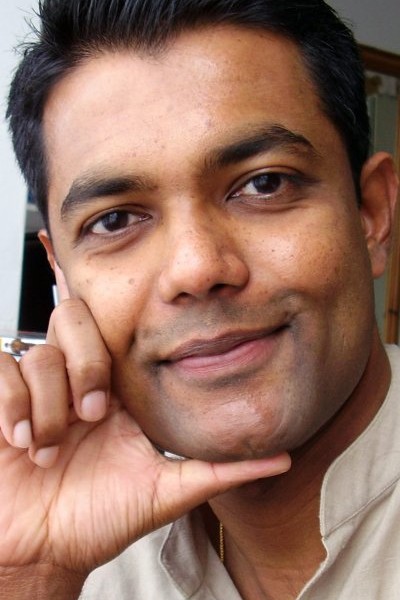Chindu Sreedharan is a Professor of Journalism & Innovation at BU. His research, together with Prof Einar Thorsen, focuses on journalism in conflict and disaster situations. It’s had significant impacts in education, training, and best practices for the Nepali news industry.
"Nepal is particularly vulnerable to disasters, including earthquakes, as the recent devastating event in the western part of the country showed us. News media play a critical role in such situations. But despite this known vulnerability, and perhaps to an extent because of it, national news outlets are not in a position to adequately respond to crisis situations. In 2015, soon after the April earthquake that killed thousands in Nepal, Einar and I began to explore what could be done to strengthen the news industry.
From research to action
We set up the Aftershock Nepal project by the end of May 2015, after the second quake in Nepal. The purpose was to map the key challenges that journalists who reported on the disaster faced, and come up with solutions and recommendations by which news outlets could overcome those. We also wanted to make sure that what we recommended was realistic and appropriate for the culture in Nepal.
A couple of years later, working with UNESCO Kathmandu, we expanded our initial research to publish a bilingual book for journalists – a guide, to help them cover disasters better. We also helped the Nepali media set up the Disaster Journalism Network – an association of news outlets who agreed to share resources and work together to report on disaster-related news.
A key highlight for me was working with the Kamana Group, one of Nepal’s biggest media agencies, to create an editorial policy for reporting on disasters. As far as we know, this is the first editorial policy of this kind in the world.
Durga Adhikari
Head of Radio Safalta, Nepal
The training from Dr Sreedharan and Prof. Thorsen taught us to study and present solutions together with problems. We had not thought about reporting disasters in this way and it is good way for a station like ours which is working in the community.
Pivoting in the pandemic
When the COVID pandemic hit, it had a huge impact on the Nepali news industry. Working with Nepali partners, we surveyed over 1,000 journalists, from every province in Nepal. We found that the majority were feeling vulnerable and anxious, and many were grieving too. At work, more than a third had taken a pay cut and others had lost their jobs entirely. Based on the responses we developed 10 recommendations to improve the psychological health of those working in news media, and to provide financial solutions and boost resilience.
From this survey, evidence emerged on the specific challenges faced by the country’s female journalists. The final report was launched by Dr Yuba Raj Khatiwada, Nepal’s Honourable Minister of Finance, and Communication and Information Technology.
We’re delighted that the Government of Nepal has taken notice, acknowledging the role of women in the country’s news industry, and investigating how they can be better supported.”
“Your COVID-19 national survey report has helped us to draw our attention towards the psychological needs of female journalists during the present situation. It has provided us an evidential basis for the issues of mental well-being and job security that female journalists in Nepal face and underlined the need for the development of policies and programmes that specifically address this issue.
The gender breakdown, changes to employment, and variations across provinces in the report provided us with rich insight and have influenced my thinking on gender mainstreaming and women’s empowerment in the media industry.
In fact, the report provided a valuable contribution to our forthcoming research report.”
Samiksha Koirala – former Advisor to Parbat Gurung, Minister of Women, Children and Senior Citizens, Government of Nepal
